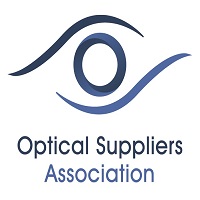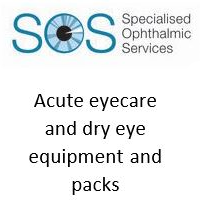Working with Visual ImpairmentThis guide has been offered to us by Lisa Manners who was searching for support available in the workplace as her daughter has very poor vision and was due to start work in March. This has since been put on hold due to the covid-19 outbreak. I was already nervous about her going to work, but the recent crisis has heightened my fears even further. PHN has not fact checked these assertions but feel the links might be a useful lead to those wishing to find out more. Support for Blind and Visually Impaired Employees This guide will discuss your options, ensuring that you are treated fairly and equitably by an employer – whether seeking a new job, or adapting to a change in circumstances regarding your eyesight. Legal Rights The government’s Equality Act of 2010 makes it a criminal offense for any business of employer to discriminate against an employee on the grounds of blindness or restricted vision. Blindness is considered a disability by law, a status that ensures particular protections. The Royal National Institute of the Blind (henceforth referred to as RNIB) discusses the ‘reasonable steps’ that employers should be expected to take to accommodate a blind or partially sighted employee. The Government-based Health and Safety Executive elaborates further on the rights and reasonable expectations of visually impaired employees. The Equality and Human Rights Commission should also be investigated. If you have any doubt at all that you are not being treated fairly at work due to your eyesight, take action. There are multiple steps in this process, escalating if you feel that your concerns are not being addressed. Discuss your issues and concerns with your line manager, outlining changes that you would like to be made. Make a complaint to the Human Resources department of your business if these concerns are not addressed, or contact your trade union representative if applicable. Report this issue to HSE to request formal action. Seek legal advice if necessary. The Disability Law Service should be your first port of call here, as free advice is available. Very few businesses will allow things to progress this far. In most cases, maintaining an open dialogue is the best and most fruitful approach. All the same, it pays to be aware of your rights – and how you can react if these rights are not being respected. General Advice Never be shy about seeking help or advice from these bodies. They have been established with the aim of aiding and assisting people that experience difficulties with their eyesight. The assistance, advice and support they offer can be invaluable. Finding Work Sight Advice discusses this in more depth. While a blind individual may need a little additional support or technology, the right to work – and length and breadth of opportunities – should not be impacted by eyesight. Blind in Business offers training programs and work placements for blind and partially sighted employees. Vercida is an employment portal that specialises in finding opportunities for disabled individuals, including the blind and partially sighted. The Association of Disabled Professionals provides support for blind individuals seeking work or career advice. There is no need to rely on Universal Credit if you are blind. There are opportunities to find new work. Perhaps more importantly, your legal right to retain your job after losing eyesight remains enshrined. It should also be noted that you have no legal requirement to disclose blindness or vision problems to a potential employer ahead of an interview. If you do so, however, the onus will be on said employer to by comply by all relevant law and guidance surrounding equal opportunities. Financial Support RNIB discusses the financial aid that is available to blind and partially sighted people in the UK. These include grants, which may be able available from your local authority. Charities such as Turn2Us provide the opportunity to search for unique grants, based upon your location and unique circumstances. Central government makes a range of grants and benefits available to blind and partially sighted individuals. These include: Disability Living Allowance The Macular Society lists out the many and varied benefits that blind and partially sighted people are entitled to. These include concessions on travel, which may be invaluable to anybody that cannot drive themselves to work. If you are financially struggling, be sure to discuss your situation with the Citizen’s Advice Bureau. Here, you will find a wind range of experts that can provide tailored advice and guidance as to how you can ease any fiscal burden. Not all of these financial options will be open and available to working people, regardless of visual impairment. It is always advisable to investigate your options, though. Help is out there. It’s often just a matter of asking. Assisting Technology Other support is available, however. Technology is making the workplace increasingly accessible to the visually impaired, and as discussed, an employer will be legally expected to make appropriate adjustments. Guide Dogs are the most popular form of assistance for blind individuals, acting as a visually impaired person’s eyes while also providing companionship. Blind New World discusses advances in technology from 2017. Imagine how far things have progressed since then! Living Made Easy discusses the multitude of everyday items that can enhance a blind individual’s quality of life, many of which are transferrable to the workplace. Everyday Sight lists a Top Ten examples of screen reading technology (reciting the content on a screen for the visually impaired), or which half are free of charge. There is special financial assistance for students through to University level for technology. PHN reccomends Sight and Sound Technology to review the latest equipment available. Lisa Manners Take a look at other clinical briefing papers published by PHN |
- Home
- Sector News
- Clinical
- Autism, signs of Autism,
- An easier and safer life for Seniors with Low Vision
- An overview from USA on anorexia and vision.
- Assistive technologies for Sight Loss.
- Blue Light, a hazard?
- Dealing with Mental Health issues in the workplace
- Eyecare and sight loss let’s work together
- The Effects of Tinnitus in the Workplace
- House Hunting with Vision Loss
- How to Adapt Your Home for VI’s
- How to Avoid Malpractice Allegations
- Hearing Loss at Work
- I can’t see you. Can you see me?
- I got more help at the cinema than the optician!
- Making LV Services more Accessible
- Night Driving especially for ageing motorists carries dangers
- Resources for Adults New to Vision Loss
- Seven Ways to Make Low Vision Services Pay
- Sight Loss Needn’t Mean Job Loss?
- Sleep Tips for Visually
- Tips on Eye Examination for those with Autism
- Working with Visual Impairment
- Autism, signs of Autism,
- Business
- Are you paying too much VAT
- GDPR changed 2018 But are you compliant?
- Thinking about buying equipment or improving your practice, then think carefully.
- PMS: How Far Will It Take Us?
- PMS: What Are The Basics For Optical Practice Today?
- PMS: Advantages of Using Stock Modules to improve VAT%
- PMS: The paperless practice for smart optical practice
- VAT on Dispensing are you MTD compliant?
- VAT FAQs … your questions answered
- Other Briefings
- Events
- Charities
- Optical Supplier Directory
- About Us
- My Local Optician Public Education Site
- Recap on our Last published Opchat News
- Login /
- Register























